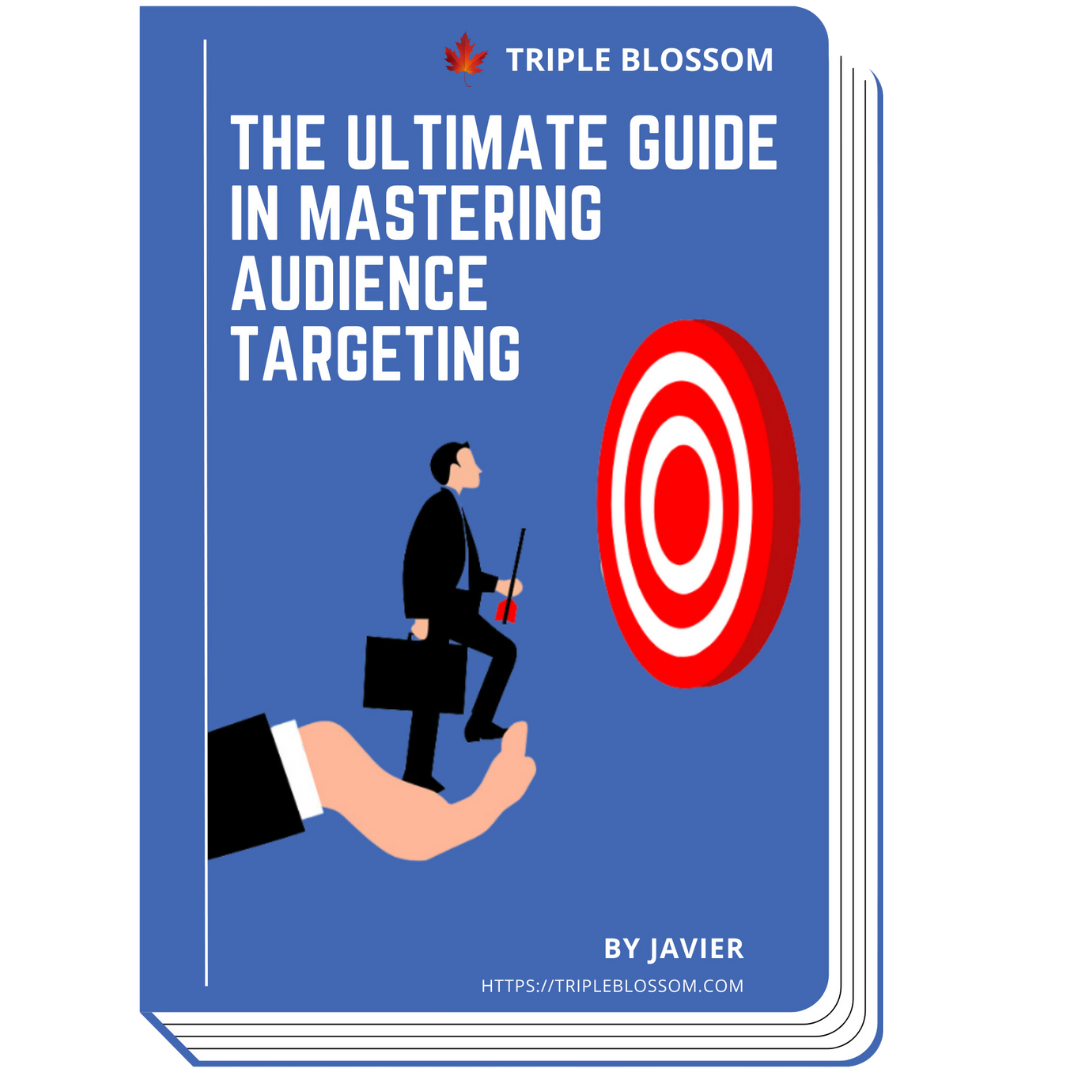How To Target College & University Students On Facebook Ads


When it comes to targeting young, tech-savvy audiences like college and university students, Facebook is an invaluable tool. It's the place where they connect with friends, share updates, join groups, and even keep track of their academic schedules. However, tapping into this active and engaged user base isn't as straightforward as it seems.
The Challenges In Targeting Students On Facebook

Students have unique consumption habits and lifestyle patterns that are different from other demographic groups. They often have limited disposable income, yet they have specific needs and wants related to their academic life and social activities. If businesses fail to understand and address these unique patterns and preferences, they risk creating content that doesn't resonate, leading to low engagement and conversion rates.
There is also the challenge of distinguishing between different types of students. A freshman undergraduate may have different interests, needs, and behaviors compared to a senior postgraduate student. Businesses often struggle with segmenting their student audience effectively and tailoring their marketing messages accordingly.
The above presents complications for businesses marketing student events or headhunters and job agencies recruiting fresh graduates. Navigating these restrictions requires an innovative approach to Facebook advertising. But don't worry; with a bit of creativity, it's possible to overcome these obstacles and effectively reach pre-university, college, and university students.
How Can You Target College & University Students On Facebook Ads
1. Using Interests to Target Higher Education
Facebook's interest targeting can be a valuable tool in reaching undergraduate and postgraduate students. By combining age targeting with interest targeting related to higher education, you can narrow down your audience based on their specific needs, preferences, and lifestyle.
- Targeting Undergraduates
Undergraduates are typically younger students who are just beginning to navigate their independence. You could target 18-24-year-olds with interests in undergraduate higher education, such as "Bachelor's degree", "College", "University" or "Students' union".

They are often on the lookout for affordable solutions that cater to their specific needs as students.
A great example of this is laptop promotions catered specifically for students. A technology retailer could run an ad campaign targeting undergraduates interested in computer science, engineering, or any course that heavily relies on computers. The ad might highlight a special "Student Edition" laptop — a budget-friendly, robust device perfect for coursework, research, and entertainment. By targeting this way, they're not only reaching potential buyers but also positioning their brand as student-friendly.
- Targeting Postgraduates
On the other hand, postgraduates are generally older students who are further along in their academic or professional journey. You could target 22-40-year-olds with interests in postgraduate higher education, such as "Master's degree", "Postgraduate education", "Postgraduate research" or even specific Master courses related to your field.

They might seek more specialized products or services that align with their advanced studies or career aspirations.
For instance, a company providing online professional development courses could target postgraduates interested in specific fields like business management, environmental science, or public policy. Their ad campaign could highlight how their courses can supplement their postgraduate studies or help them gain a competitive edge in the job market.
2. An Unconventional Approach: Targeting Parents
Facebook restricted Detailed Targeting options in targeting teenagers under 18. While targeting students directly may be the initial impulse, businesses should not overlook the potential of reaching out to parents. Parents often play a significant role in their children's educational decisions, especially when it comes to choosing a college, polytechnic, or university. They often have an equal, if not more significant influence on big-ticket decisions like course selection and college admissions.

While Facebook restricted Detailed Targeting options in targeting teenagers under 18, targeting parents of college and university students makes a lot of sense once you think about the role parents play in students' lives.

Let's consider a case where a university wants to promote its new engineering program to attract fresh applications. Traditional methods would include targeting high school students with interests in science, technology, engineering, and math. However, this strategy could be supplemented by targeting their parents, who are likely to be involved in the decision-making process.
The university could create a Facebook campaign aimed at parents aged 40-60 who live in the same region as the university and have shown interest in educational topics or organizations. The ad content could be crafted to highlight the university's state-of-the-art facilities, accomplished faculty, successful alumni, and job placement rates - all points that parents care about when considering the value of higher education for their children.

This strategy could also be used for annual events like open days or admission fairs. For instance, a polytechnic could target parents in their ads promoting the event. They could emphasize aspects like career-oriented courses, hands-on training, strong industry connections, and high employment rates upon graduation. These are factors that parents, keen on their child's future success, are likely to consider.
3. Use Geofencing For Precision in Location
Geofencing is a remarkable tool for businesses looking to attract a local audience, particularly for businesses with physical locations, such as retail stores or coffee shops. Essentially, it allows you to set a virtual perimeter around a specific area. When people enter this area, they become part of your target audience.
Consider a local coffee shop located near a university campus. The owner wants to attract university students, offering them a cozy place to study, catch up with friends, or grab a quick coffee between lectures. The coffee shop owner can set up a geofencing campaign targeting the university's location, creating a virtual perimeter around the campus. The targeting could be as precise as only including the main buildings where lectures take place or the student accommodations.
With this strategy in place, whenever a student enters the 'fenced' area, they can start seeing the coffee shop's ads on their Facebook feed. The ad could promote student-friendly offers "Show your student ID to get a free muffin with any large coffee purchase", or engaging content that resonates with student life, such as an ad with a group of students studying at the coffee shop with a caption saying, "Looking for a quiet place to study for finals? Our shop has plenty of space, free WiFi, and great coffee to keep you focused."
4. Leveraging The Power of Facebook Groups

Facebook groups have become hubs of activity and discussion. Universities often have several related groups, including alumni groups, incoming class groups, and even niche interest groups (e.g. university hiking clubs). Advertising to these highly engaged Facebook groups allows businesses to reach a more targeted audience with a higher conversion rate.
For example, a career counseling service could target members of a university's career services Facebook group. Their ads could offer resume workshops, interview tips, or personalized counseling services. By advertising to a group of students who are actively thinking about their careers, they're more likely to attract clients and build a reputation as a trusted resource.
5. Broad Targeting and the Power of Content

Broad targeting means you don't strictly limit your targeting parameters, instead, you cast a wide net that encompasses a broader age group, say 18 to 24, which generally includes most college and university students. However, the real key here lies in the content of the ad itself.
Imagine you're running a clothing line that's perfect for the trendy, fashion-forward university crowd. You might choose broad age-based targeting, but your ad would specifically speak to the needs and interests of students. Maybe your ad showcases a stylish yet comfortable outfit perfect for a long day of classes followed by a social event. The caption might read: "From lectures to late-night hangouts, stay stylish and comfortable with our newest collection."
If you're a job recruitment agency specializing in entry-level positions for recent graduates, you could target a broader audience but make your content very specific. Your ad could highlight the benefits of the job opportunities you offer for fresh graduates, with a caption like, "Kickstart your career journey with top SaaS companies and start-ups. Discover the best job opportunities for recent grads here."
By using broad targeting and creating content that directly appeals to university students, you can still reach your intended audience effectively. Facebook's algorithms are exceptionally skilled at identifying who engages with what content. The more college students interact with your ads, the better the platform becomes at showing your content to similar users.
The key importance lies in understanding your audience and crafting content that resonates with them. The combination of broad targeting with powerful, student-focused content can help you navigate around the challenges of targeting college and university students on Facebook, achieving your ultimate business objectives.
Are you constantly feeling that Facebook Ads is not working anymore? Despite all your efforts and strategies, with each algorithm change, it feels like you're back at square one. The ROI isn't what it used to be, and you're left wondering if Facebook Ads has lost its magic.
After diving deep into the intricacies of audience targeting and the ever-evolving Facebook landscape, I've uncovered strategies that remain effective despite the platform's constant changes. Discover these insights in my latest E-Book - The Ultimate Guide In Mastering Audience Targeting.
